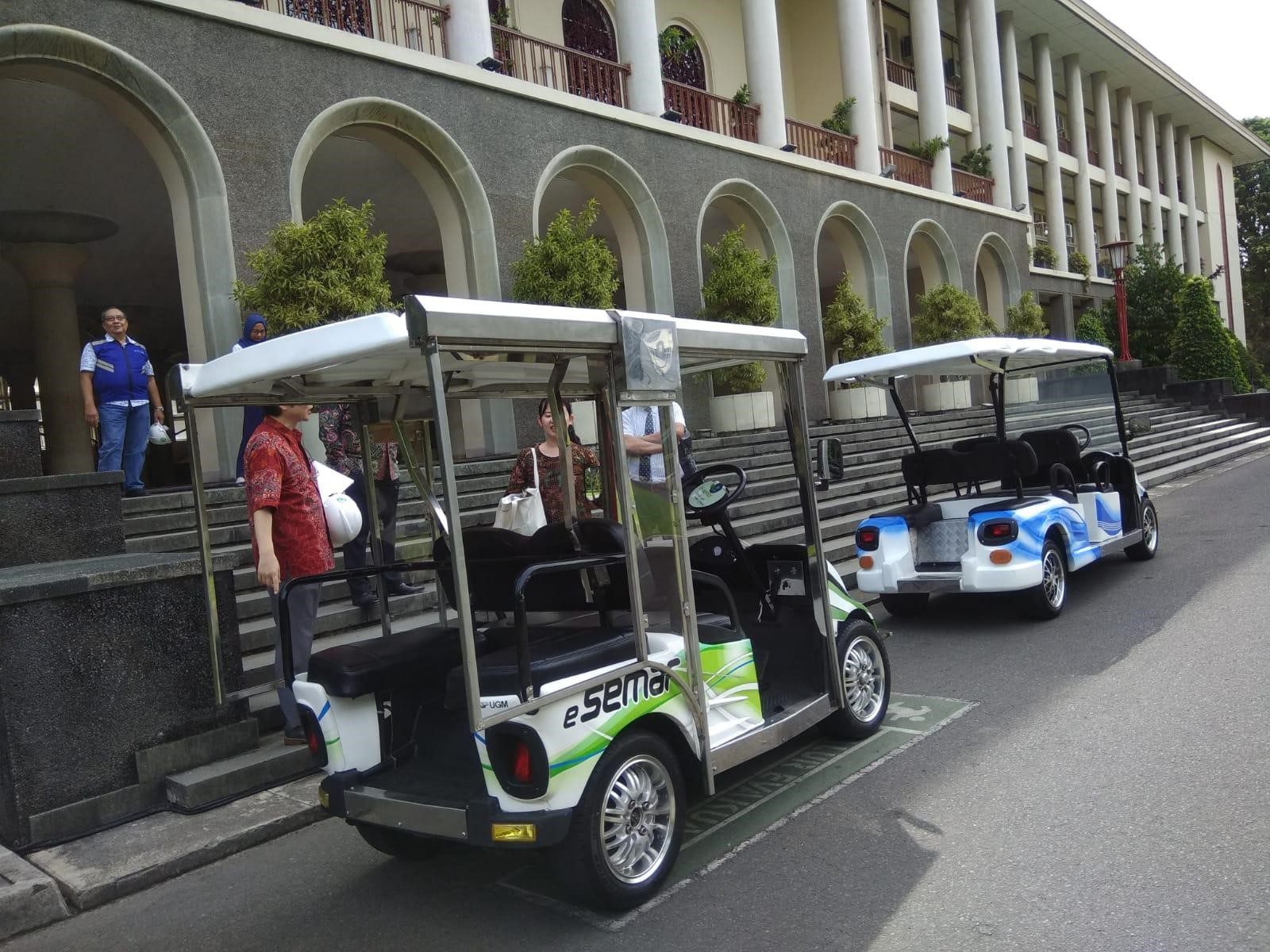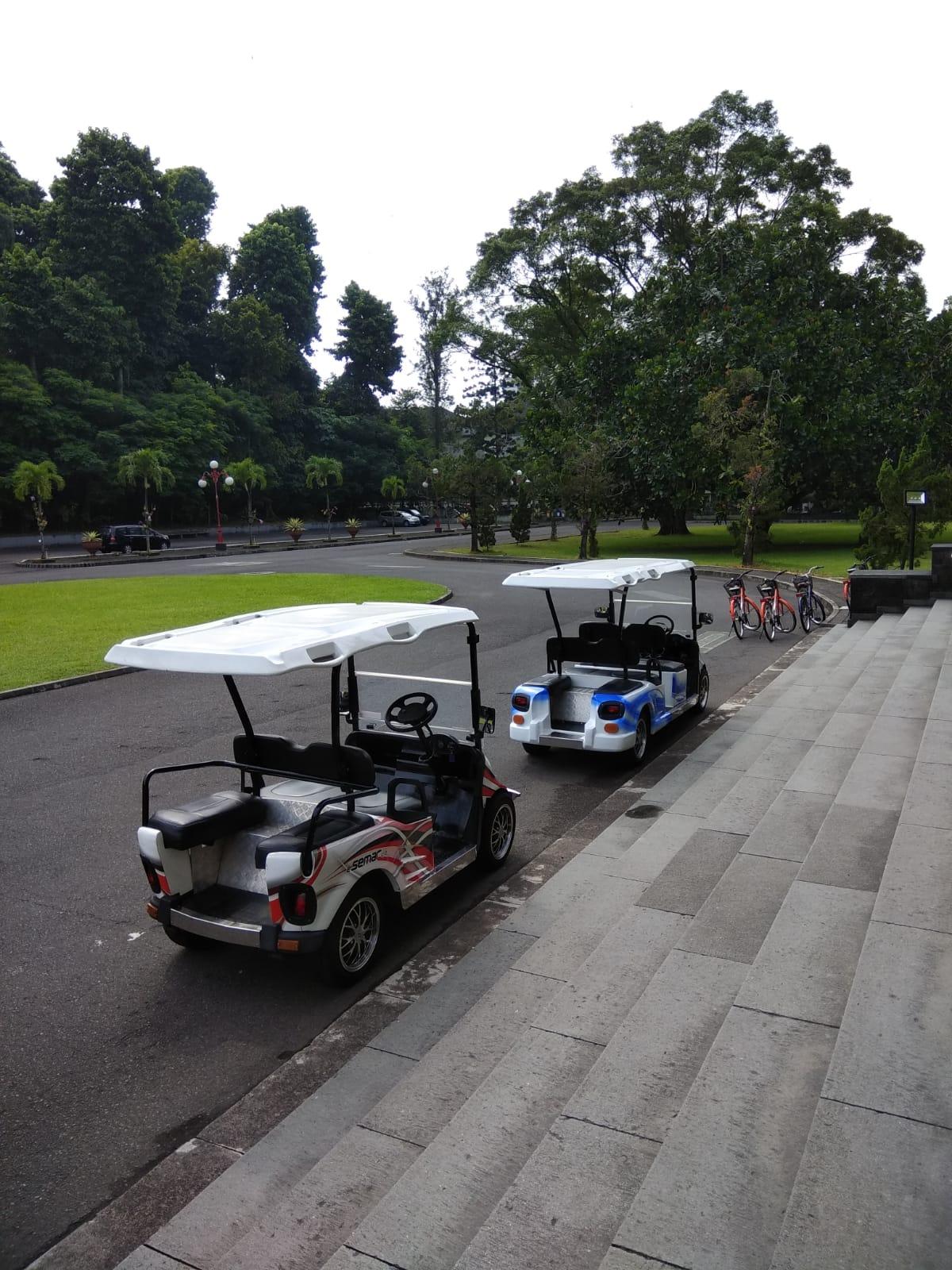Universitas Gadjah Mada’s Development Plan (RIPK) 2005 – 2015 provides instruction to develop the educopolis area, which is a conducive environment for the learning process in the context of developing multidisciplinary collaborations and responsive to ecological issues. The campus bike service management policy is one manifestation for this vision. In addition to physical health, the use of bicycles in the campus environment is also expected to support a friendly environment between students as prospective national leaders in various fields of expertise.
The means of transportation infrastructure on campus are arranged to consider various aspects, such as: safety, comfort, provision of fresh air, and connectivity between various parts of the campus. For this reason, priority is given to different types of transportation modes: the first priority of transportation development is pedestrian, followed by non-motorized vehicles, public transportation, and finally private motor vehicles. Beginning in mid-2011, the University organized Campus Bicycle services as described in this website (http://sepedakampus.ugm.ac.id/#/). Campus Bicycles is a further development of the UGM Green Bicycle which was initiated in 2005 by the Center for Tourism Studies (PUSPAR), Center for Transportation and Logistics Studies (PUSTRAL) and Center for Environmental Studies (PSLH). Campus Bicycles are provided for free in all faculties and units in UGM campus. In addition, Agrotechnology Innovation Center (PIAT UGM) develops an innovation of a green motorcycle. This green motorcycle is fueled by biogas and used for internal activities in PIAT.
Figure 8 and Figure 9 describe that the campus bicycle service at Universitas Gadjah Mada has already implemented an integrated computerized system. And then, figure 4 explains how to use campus bicycles. Because of pandemic COVID 19, the usage of campus bicycles decreased in 2020. Electric shuttle buses in Figure 13 will be operated in December 2021 with 14 bus shelters. For the meantime, the shuttle buses are only used by the university staff to commute within the campus.
Bicycles owned and listed by the Directorate of Assets are 1,188 (link below). UGM also has 2 electric shuttle buses and 3 electric shuttles. Thus, the total number of ZEV owned by UGM is 1,193 units.
Additional evidence link:
http://sepedakampus.ugm.ac.id/#/
https://pk4l.ugm.ac.id/peta-sepeda-kampus/
https://dppa.ugm.ac.id/sepeda-kampus/
Number of campus bicycle:
https://docs.google.com/spreadsheets/d/15eeJ2gqT-2ZtIRGTAaGnhTPKUe9az_3d/edit?usp=sharing&ouid=101064786276301633803&rtpof=true&sd=true
Figure 1 Bicycle Shelter Location (Universitas Gadjah Mada, Indonesia)

Figure 2 Students enjoy cycling around the Campus (Universitas Gadjah Mada, Indonesia)

Figure 3 Campus Bike (Universitas Gadjah Mada, Indonesia)

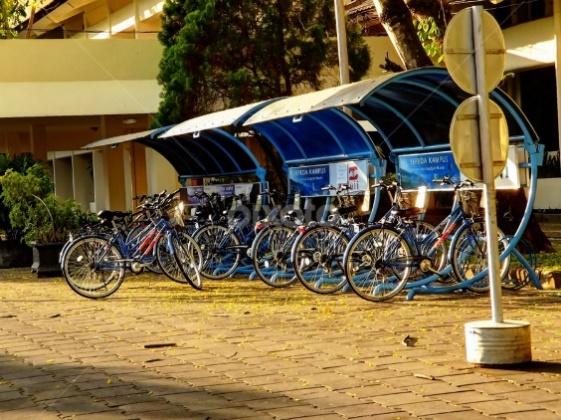
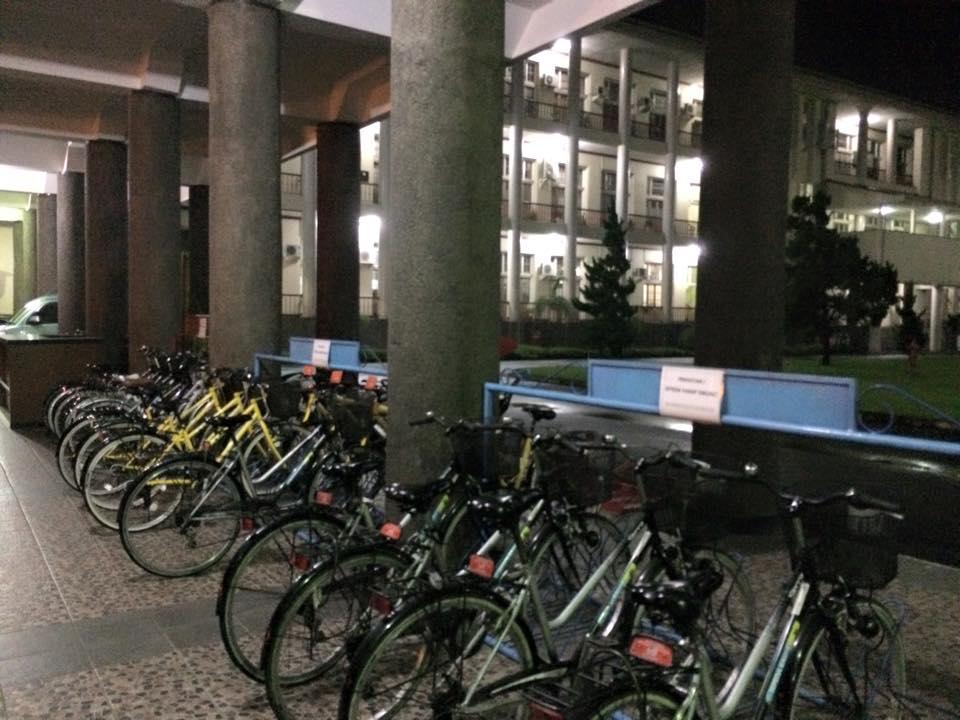
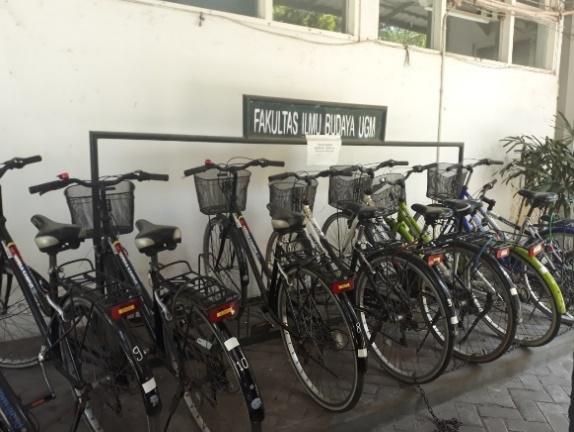
Figure 4 Standard Operating Procedure Campus Bicycle Services
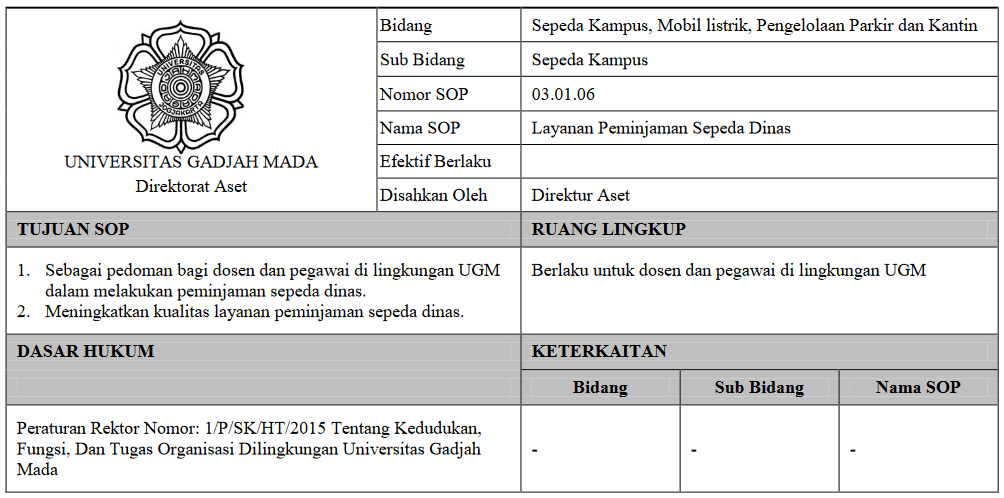
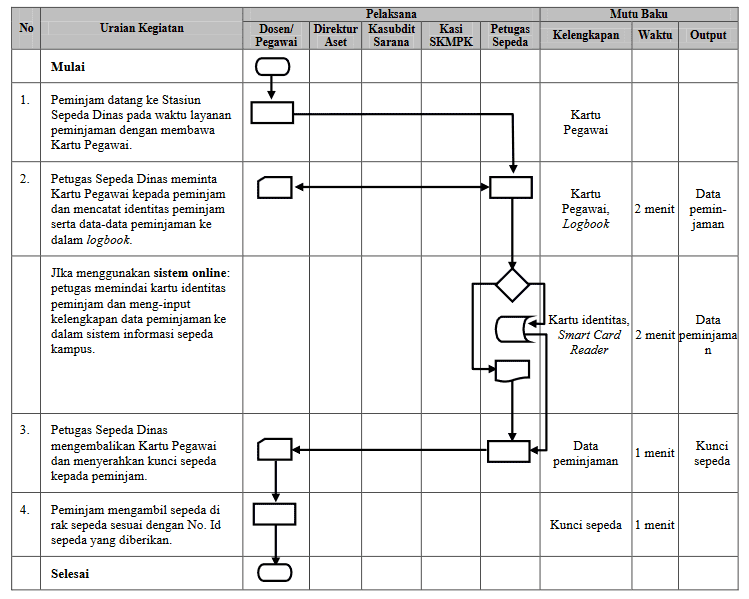
Figure 5 Campus Bicycle Pamphlet
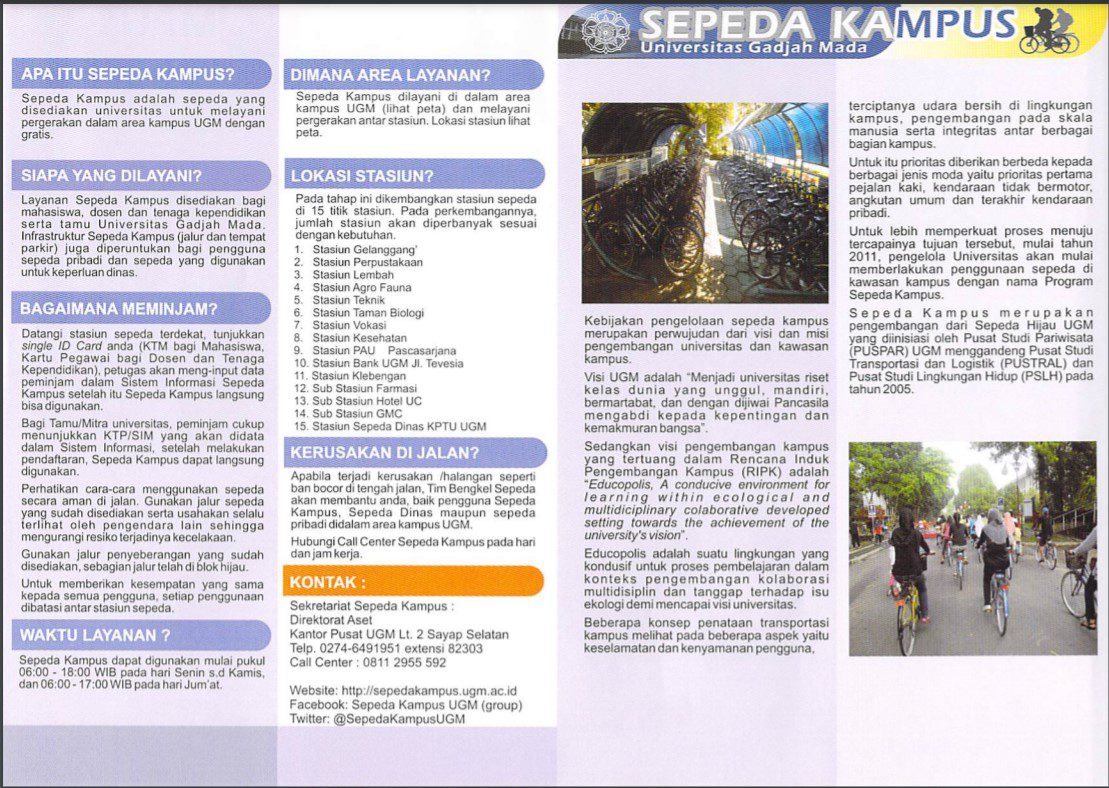
Figure 6 Computerized System
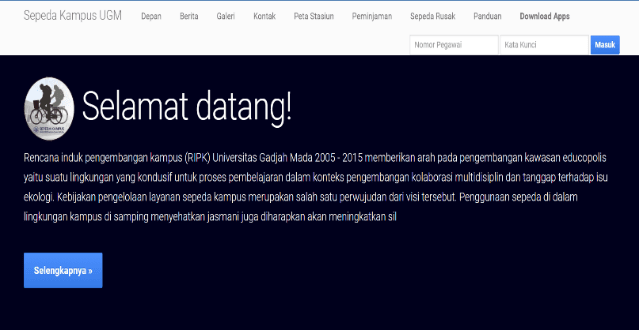
Figure 7 Campus bike rental list
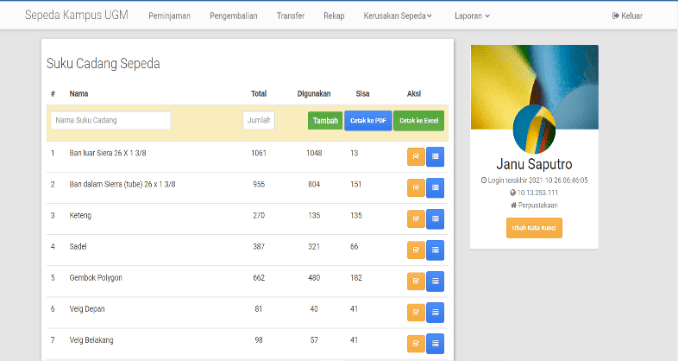
Figure 8 List of campus bicycle sparepart
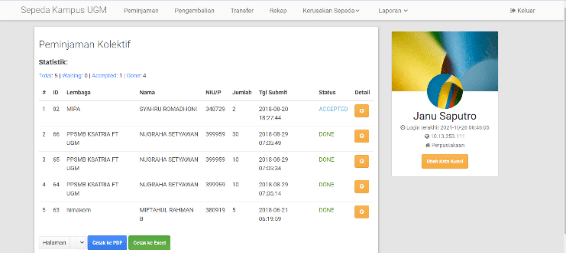
Figure 9 Campus bicycle usage chart in 2019

Figure 10 Campus bicycle usage chart in 2020
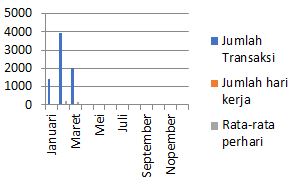
Figure 11 Bicycle rental data (Universitas Gadjah Mada, Indonesia)
| Month | Number of Transaction | Total Work Day | Daily Average | Note |
| January | 1396 | 21 | 66 | |
| February | 3942 | 19 | 207 | |
| March | 2045 | 15 | 136 | |
| April | – | – | – | Covid-19 Pandemic |
| May | – | – | – | Covid-19 Pandemic |
| June | 2 | 2 | 1 | Covid-19 Pandemic |
| July | 16 | 7 | 2 | Covid-19 Pandemic |
| August | 16 | 7 | 2 | Covid-19 Pandemic |
| September | 8 | 6 | 1 | Covid-19 Pandemic |
| October | 5 | 4 | 1 | Covid-19 Pandemic |
| November | 5 | 4 | 1 | Covid-19 Pandemic |
| December | – | – | – | Covid-19 Pandemic |
| TOTAL | 7435 | 85 | 87 |
Figure 12 Green Motorcycle (Universitas Gadjah Mada, Indonesia)
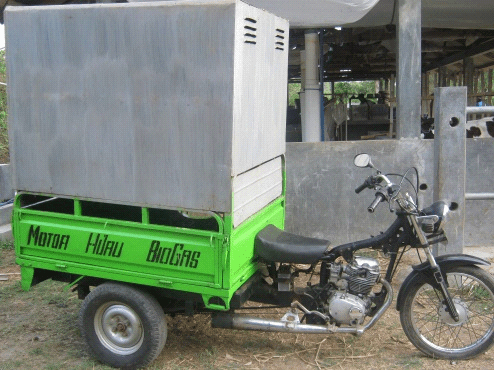
Figure 13 Two electric shuttle buses
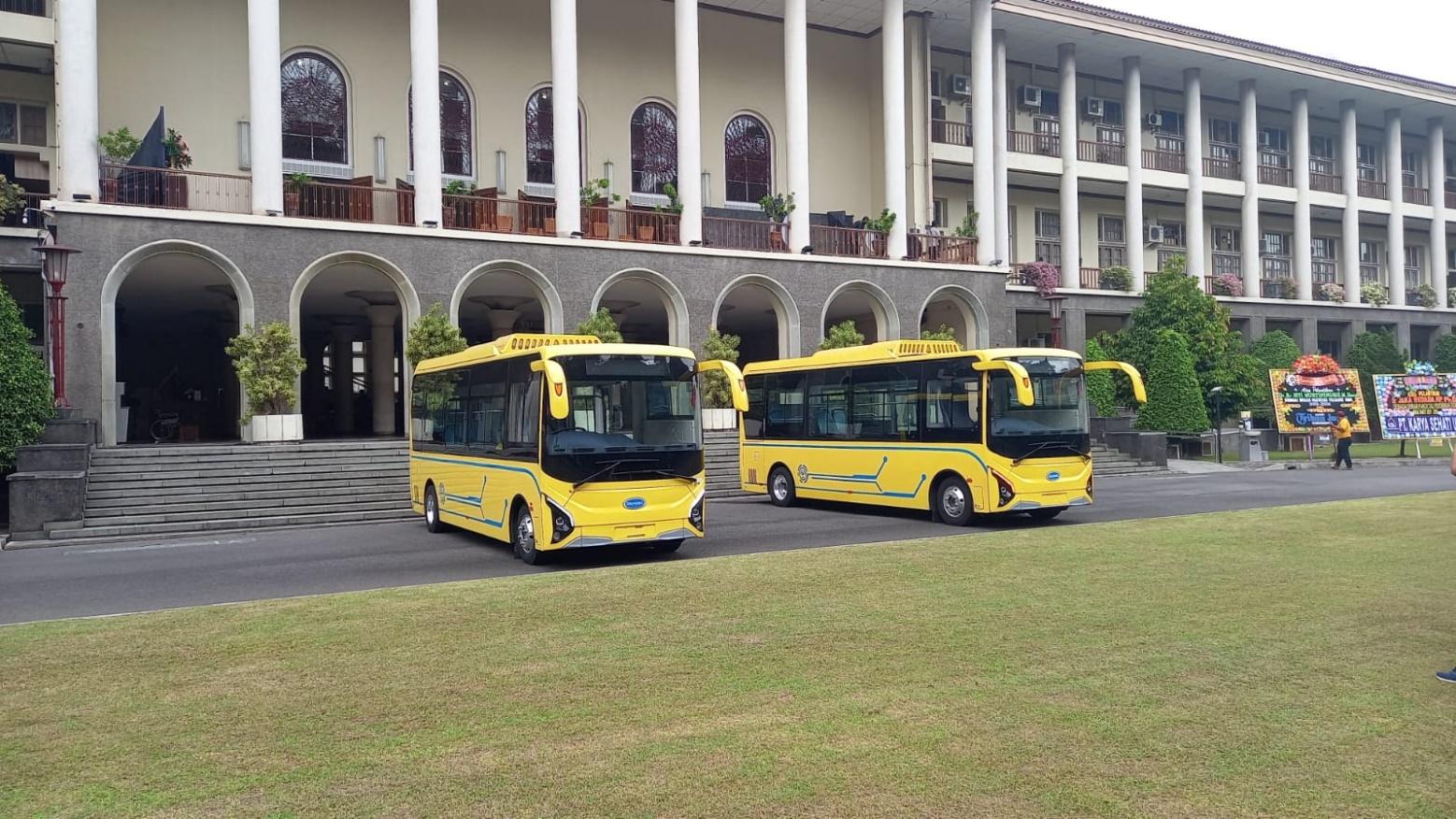
Figure 14 Planned route for the electric shuttle buses

Figure 15 Three Electric Shuttle
